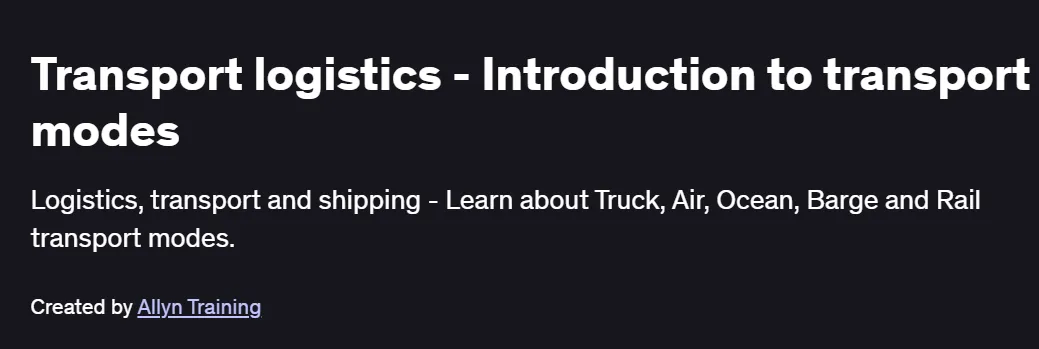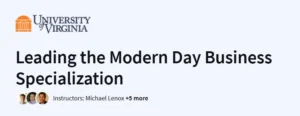What will you in Transport logistics – Introduction to transport modes Course
Understand the fundamental principles of transportation systems and their role in economic development.
Gain insights into various transport modes: road, rail, air, maritime, and pipeline.
Learn how to evaluate the advantages, limitations, and applications of each mode.
Explore environmental, regulatory, and operational aspects of transport infrastructure.
Analyze modal choice decision-making in logistics and urban planning contexts.
Program Overview
Module 1: Introduction to Transport Systems
⏳ 30 minutes
Overview of transportation’s role in trade, logistics, and development.
Key components of multimodal systems and global infrastructure.
Module 2: Road Transport
⏳ 45 minutes
Characteristics, benefits, and constraints of road-based transport.
Types of vehicles and suitability for short-haul freight and passengers.
Module 3: Rail Transport
⏳ 45 minutes
Features of freight and passenger rail systems.
Comparative efficiency, safety, and energy consumption.
Module 4: Air Transport
⏳ 30 minutes
Role of aviation in international trade and time-sensitive cargo.
Regulatory and cost-related challenges of air transport.
Module 5: Maritime Transport
⏳ 45 minutes
Port infrastructure, vessel types, and global shipping routes.
Containerization, cost-effectiveness, and environmental impacts.
Module 6: Pipeline Transport
⏳ 30 minutes
Use of pipelines in transporting oil, gas, and chemicals.
Safety, environmental considerations, and geographic limitations.
Module 7: Modal Comparison & Selection Criteria
⏳ 45 minutes
Cost, speed, flexibility, and environmental trade-offs.
Case studies on choosing optimal transport modes.
Module 8: Transport & Sustainability
⏳ 30 minutes
Climate change, emissions, and transport’s ecological footprint.
Trends in green logistics and policy responses.
Get certificate
Job Outlook
High Demand: Transport knowledge is crucial in logistics, supply chain, infrastructure planning, and urban development.
Career Advancement: Supports roles in transport planning, logistics coordination, and policy advisory positions.
Salary Potential: Transport planners and logistics professionals earn $60K–$100K+, depending on specialization.
Freelance Opportunities: In demand for project-based logistics consulting and infrastructure analysis.
Specification: Transport logistics – Introduction to transport modes
|





